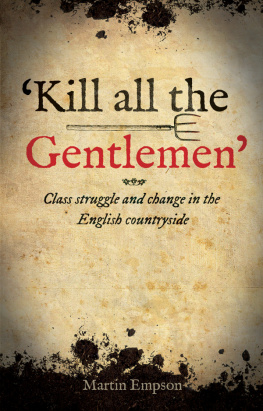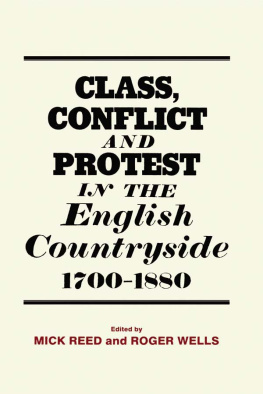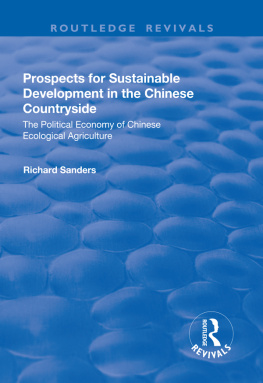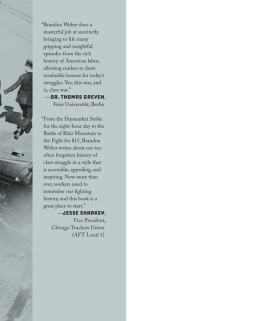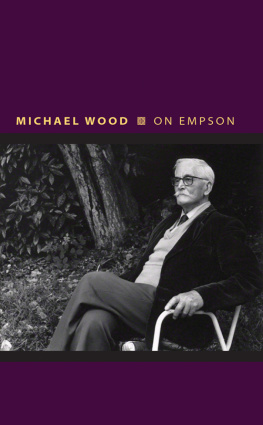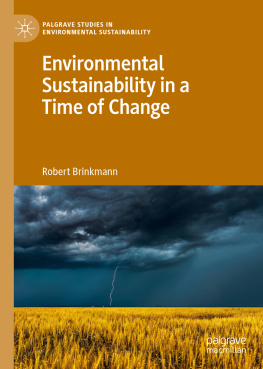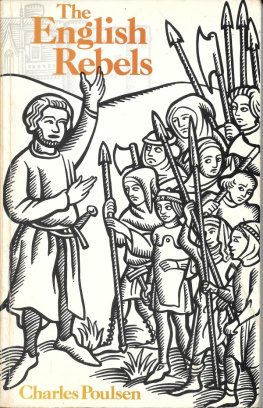Contents
Guide
When politicians and pundits talk about the economy and the market, what do they really mean? The tenor of debate usually implies these are naturally occurring elements, as unchangeably there as the sky above us. This is, of course, one of the greatest cons of our times.
Our economic system was createddecisions made and battles fought over the course of centuries brought us to this point.
British history is in fact one of unceasing class struggle, as the often voiceless majority fought for justice and equality against a powerful elite. Our taught history covers only isolated incidentsselected revolts and strikesin what has been a continuous process. Empson seeks to redress the balance and concentrate on the full sweep of the history of rural class struggle.
His book is an essential read for anyone interested in how we, as a nation, arrived at this place of inequality and social division, how it could have been avoided and what we can, and must, do about it.
DR LOUISE RAW, historian and author of Striking a Light: The Bryant and May Matchwomen and their Place in History
The history of the common peoples struggle for control of their land and labour has fundamentally shaped our world. Martin Empsons account takes the long view of how this has played out in England, in the process bringing out the continuities and variations in patterns of rural protest past and present.
MATT CLEMENT, author of A Peoples History of Riots, Protest and the Law: The Sound of the Crowd (2016)
Highly readablethis book weaves together a tapestry of uproar spanning over six centuries.
JOSH SUTTON, author of Food Worth Fighting For: From Food Riots to Food Banks
This is a valuable overview of the rural workers long fight against economic oppression. It will help to clarify the fact, not always recognised, that the struggle of the wage labourer began in the fields, not the factories.
GEORGE YERBY, author of The English Revolution and the Roots of Environmental Change
About the author
Martin Empson is a longstanding socialist and environmental activist who has written on Marxism, ecology and agriculture. His first book Land and Labour: Marxism, Ecology and Human History looked at the changing relations between nature and society through history.
Acknowledgements
Writing this book has incurred a large number of debts. Thanks to the staff of Manchester Central Library and Archive for their help in locating rare publications and to the Working Class Movement Library in Salford for help with material on the Luddites and for finding me an actual truncheon used by the militia against those protesters. A number of individuals read various drafts and made numerous comments and suggestions. If I havent always followed all their advice I was nevertheless grateful for it. Thanks again to Richard Bradbury, Matt Clements, Graham Mustin and Josh Sutton. At Bookmarks I would like to thank Sally Campbell, Lina Nicolli, Peter Robinson and Carol Williams, for all their work and thanks to Yuri Prasad and Dave Sewell for the cover design. Finally I would like to thank Sarah Ensor for her support and encouragement over many years.
KILL ALL THE GENTLEMEN
Class Struggle and Change in the
English Countryside
Martin Empson

Kill All the Gentlemen:
Class Struggle and Change in the English Countryside
By Martin Empson
Published 2018
Bookmarks Publications
c/o 1 Bloomsbury Street, London wc1b 3qe
Quotes from newspapers courtesy of British Newspaper Archive
britishnewspaperarchive.co.uk The British Library Board
The Fell Types are digitally reproduced by Igino Marini
www.iginomarini.com
Typeset by Peter Robinson
Cover design by Yuri Prasad and Dave Sewell
Printed by Melita Press
ISBN 978-1-910885-69-7 (pbk)
978-1-910885-70-3 (Kindle)
978-1-910885-71-0 (ePub)
978-1-910885-72-7 (PDF)
Contents
Introduction
BRITAIN TODAY is a highly industrialised, urban society. A small percentage of the population live in rural communities and an even smaller part of the working class are employed in agriculture. So why write a book on the historic struggles of the peasants and labourers of England? What relevance do these, often forgotten, movements of the last 700 years have for people today?
In part this book is about celebrating the struggles of ordinary people. When we learn about the history of England, we rarely hear the full story of what happened. Occasionally we hear about Wat Tyler and the Peasants Revolt and perhaps Jack Cade or Robert Ketts rebellions but if we do, they are explained as isolated incidents that bucked a trend of gradual economic development. The reality, as I have tried to show in this book, is that the history of the English countryside is one of constant class struggle; a fight that, as Karl Marx and Friedrich Engels put it in the Communist Manifesto, is sometimes hidden and sometimes open. This book celebrates the rural class struggle for equality, justice and a better life and through this, hopes to inspire people today.
But this history also has a deeper significance. As a socialist involved in the environmental movement, it is abundantly clear to me that the reason we face a global ecological crisis in the 21st century is because capitalism puts profits before people and the planet. It is a system that systematically degrades the natural world in order to accumulate wealth for the richest. Capitalism arose out of earlier class societies but is marked by a very different set of priorities; under capitalism, everything from land and water to plants and animals is turned into a commodity. Capitalism transformed everything about rural life and agriculture.
There have been extensive debates among Marxists about how to explain and understand the development of capitalism out of feudalism. There are many factors to this debate, including the class struggle between peasant and lord, the interaction between town and country and the growth of trade and manufacturing. In this book I have followed the analysis of Chris Harman who, while engaging with the work of Robert Brenner and others, reasserted the approach of Karl Marx. Harman avoided looking for a single factor that allowed capitalism to begin, but showed how Marx saw capitalism arising from four factors, the growth of tradefree labour in manufacturingseparation of the peasantry from the land, andthe primitive accumulation of capital. Harman continues by explaining that what was important was the interaction between these individual factors which
all arose from the way in which the growth of the forces of production within feudalism threw up new relations of production, relations which came into collision with the old society when it entered into crisis.
So capitalism did not immediately replace the old feudal order but saw a prolonged period of transition during which different groups within society fought for their different interests. To give just three examples, we see this in the 16th century in the court of Henry VIII in which ministers had differing ideas of how far the Reformation should go, and why; we see it in Queen Marys Counter-Reformation; and we see it with those who fought to enclose land or develop market-orientated agriculture in the 17th and 18th centuries. As these groups fought each other for influence and power their conflicts sometimes spilt over into civil wars, rebellions and uprisings. Ordinary people were not passive in the face of these changes and conflicts. As we shall see, they fought to defend their interests and their beliefs, they made up the armies and they struggled to carve out their own futures or protect their historic rights. It is the struggles of these ordinary people in the face of a changing world that make up the narrative of this book.

